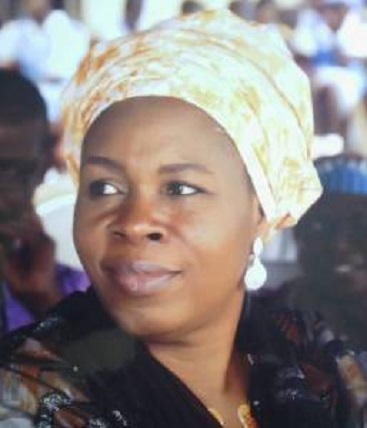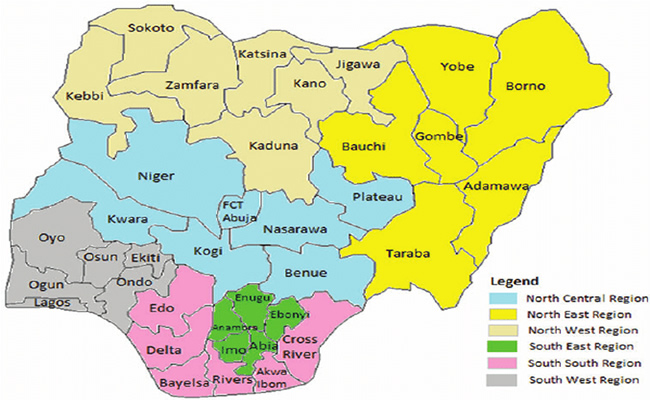The burden of public office

There is a trust deficit between the governed and government, and by extension, public office holders. Public office can make the holder very unpopular, and hated even, but if you happen to die in office, you can become a hero in death. It may have something to do with our culture and religion; however, with the late chief of staff to President Muhammadu Buhari, Malam Abba Kyari, the outpouring of eulogies and positive stories in circulation, which far outweigh the image he was cast in before his death, is unprecedented.

Being a political appointee with tremendous powers, no one expected that he would be loved by all, but many are also taken aback by the positive traits in him that are just coming to light.
Now, is the problem about the burden of office, the kind of system we run, or we are a people that like to make tragic heroes out of leaders?
With regards to the no-love-lost relationship between the government and the citizens who distrust them, you cannot blame the latter. After years of pillaging the citizens’ collective patrimony and instituting corruption in public service, leaving the mass of the people in penury and misery, the populace might be right to treat everyone in government with suspicion, but with the advent of fads like social media, fake news, innuendos and outright lies taking the centre stage, anybody can be maligned out of mischief.
As I rummaged through the avalanche of positive commentaries on Abba Kyari, I wondered why some or parts of these glowing tributes were never highlighted earlier, to at least shield him from potshots, justified or not.
A case in point was the MTN fine saga. Early in the days of this administration, in October 2015, the Nigeria Communication Commission (NCC) fined MTN $5.2 billion for non-compliance with the NCC deadline to disconnect unregistered SIM cards.
After some negotiation and horse-trading, the fine was reduced. Nigerians went agog with rumours that the president’s chief of staff (CoS) collected bribes to reduce the fine. There was never a rebuttal from him. So many allegations were later levelled against him, none of which he ever denied or confirmed. And the man died. After his death, Simon Kolawole, columnist and publisher of TheCable, in his tribute, wrote thus: “my biggest disappointment with Kyari is that he refused to tell his story.
When he was accused of taking a bribe from MTN, he explained to me how he opposed the reduction of the 5.2 billion dollar fine, how he was excluded from the resolution committee because of his stand, and how some people met in Dubai and drafted a position paper that formed 80 per cent of the final settlement agreement. He said he didn’t know if anybody took bribe, but he was not part of it and his conscience was clear to God”. This was in addition to so many other allegations of corruption levelled against him.
Is it in our nature to turn a villain into a hero in death after being vilified in office? I didn’t know Abba Kyari personally and this intervention is not about his good or bad deeds. It is simply my assessment of the way we view those in government, especially those who wield enormous powers and apply this to the maximum. I was once in government briefly and I could not fathom some of the unpalatable things said about me, including buying a house from the election money; a house I moved into three good years before my appointment. Of course, if you didn’t know me personally and I never had the opportunity of defending myself, you’d take the rumour hook, line and sinker. It could well have been the handwork of those who felt shut-out; yet that was just a modest appointment at the state level. Just imagine a big appointment at the national level, and what those who lost out in appointment-sharing could resort to.
Police arrest 3 kidnap suspects in Kogi
The tragedy of public office is also the assumptions and illusions that come with it. For some, such appointments only give one unlimited access to state resources. A lot of bad folks had long spoiled the broth for others, so everyone out there at the top is considered a thief. The situation has so degenerated that those who come to public office with their integrity intact and have remained transparent and efficient, but do not allow colleagues, friends and wheelers and dealers to dip their hands into the public till, also have their names dragged to the mud and their reputations impugned by all sorts of false accusations and petitions. Once in government, head or tail, you lose. With the way things are, public office will one day become unattractive to ordinarily qualified and efficient hands.
As articulated in some of the Abba Kyari tributes, something tells me Abba Kyari was to some extent misunderstood, and was even betrayed by those he helped to power. If the MTN bribe story as ascribed to Kyari was false, who started the spin and snowballed it into a conflagration? It must have been an interest group somewhere.
Abba Kyari was lucky. Lucky because he died in office. Lucky because the beneficiaries of his generosity and lieutenants are still very much around (and are speaking out), and the government he served in is still in power and therefore could and was able to show us Abba Kyari’s other side. All the negative things said about him would have stuck (forever perhaps) if the reverse had been the case. Many are not that lucky; they go to their graves with stigmas derived from false accusations.
In politics, all is fair in love and war, and politicians are capable of anything. Abba Kyari could have been a victim of bad politics. He could have stepped on toes of those who felt they worked harder for Buhari to emerge, only for Abba Kyari be to a major beneficiary at their detriment. Who knows? The point being made is, Nigerians can turn a saint into a devil and whitewash a villain to look spick and span. It is all within the matrix of politics.
While some of the Abba Kyari stories now in circulation are in the realm of political talk, the minister of Foreign Affairs, Geoffrey Onyema’s, says a lot about the human side of the late CoS, in the true sense of a human angle story, commitment and loyalty to friendship, forged over the years. They had met in Warwick and Cambridge in the United Kingdom in the 70s as budding young men; he was the best man at his (Onyema’s) wedding and had stuck together until he passed on last weekend. Here is one tribute that speaks to the essence of the man Abba Kyari. From that account too, it is obvious where Onyema’s appointment as minister came from.
Although positive testimonies from especially people he got into government cannot bring him back to life, they did help to counter the earlier narrative about the man, Abba kyari. Come to think of it, why did we have to put the failures of government on an appointee, and leave his principal out of the fray? Another tragedy of the governance and policy mix-up, you may say. May the soul of Abba Kyari rest in peace.








